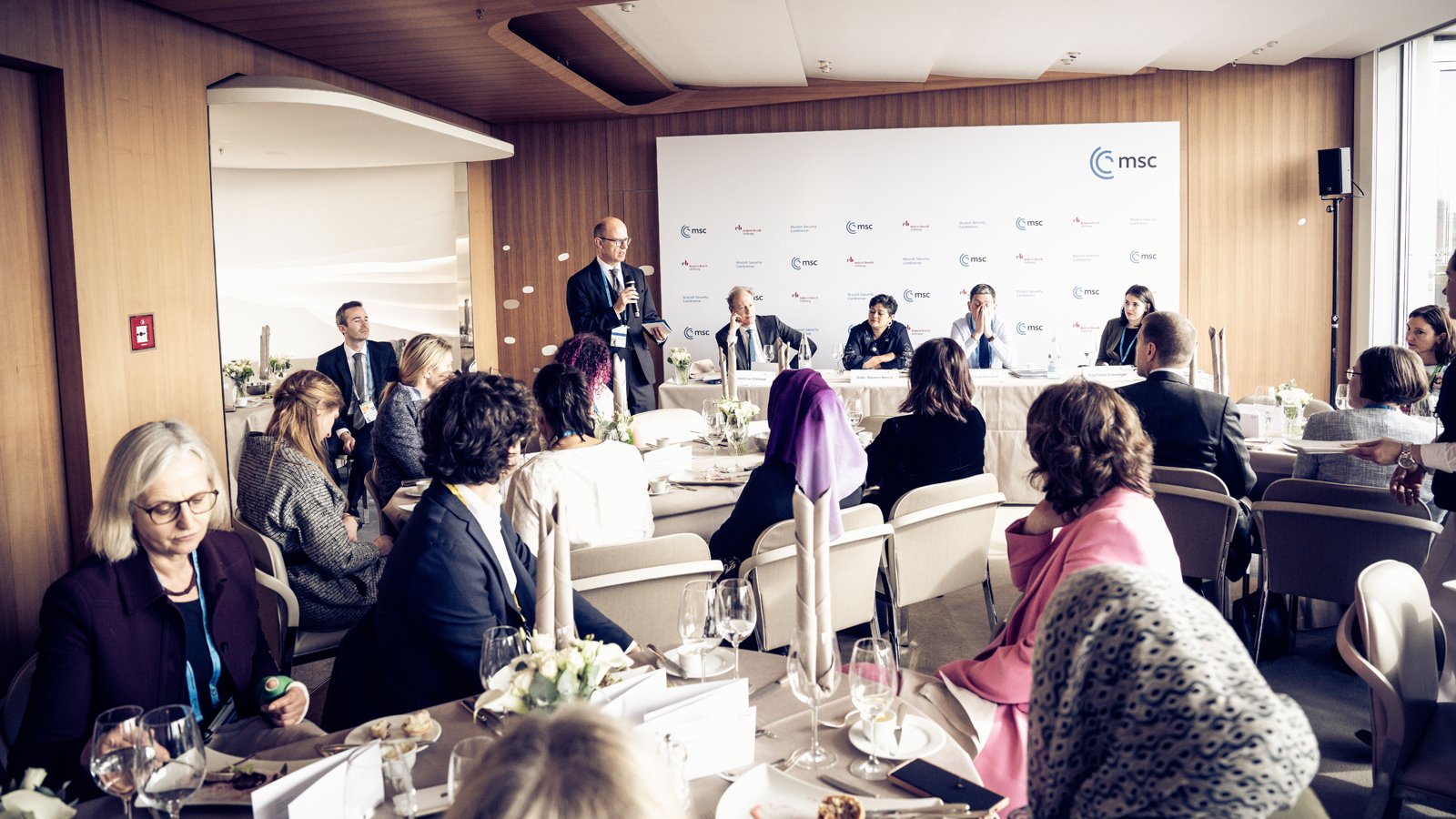Thinking ahead – The geopolitics of climate-related migration
Climate-related migration is already a harsh reality for millions and a not-so-distant future for many more. What are the consequences of climate-related migration on human security and geopolitics? What are risks and opportunities? At this year’s Munich Security Conference, we discussed these questions in our side event “Shifting (b)orders? The geopolitics of climate-related migration”.
Discussions on the climate crisis at this year’s Munich Security Conference were many – half a dozen events in the main programme, as well as a similar number of side events. In focus were both the political roadblocks in advancing climate action, as well as the green transition’s geopolitical implications. Migration, while featured in the main programme, was largely focussed on the politics of the here-and-now. In our side event, we invited panellists to look and think ahead on migration and climate change. By discussing risks and opportunities, we wanted to contribute to a nuanced and well-informed debate on climate-related migration in the security and foreign policy community.
Being forced to migrate, flee, or relocate because of climate change is already a harsh reality for millions and a not-so-distant future for many more. What are the impacts on geopolitics? Panellists agreed that stress will be first on countries, rather than between countries. Climate-related migration is – as of now and predicted to be – largely internal. Countries and regions already considered fragile and conflict-prone are often those affected. Last year in Somalia, for example, one million people have been displaced by drought. Somalia and the Horn of Africa see extreme weather conditions becoming more frequent and severe due to climate change.
Where does geopolitics come in?
Borders being shored up to prevent people's mobility is already a reality. People migrating across borders is forecasted to be a smaller share of overall mobility in the context of climate change. However, this group is likely to fall victim to larger political struggles and divides which will determine their ability to move or be trapped in dangerous and extremely difficult living conditions due to climate change. Some countries with a relatively advantageous geographical positions in the climate crisis may also exploit a potentially destabilising effect of climate-related migration on their rivals.
The analysis of what is at stake was followed by a discussion of what needs to be done. More migration is a solution to adapt to the impacts of climate change. At the same time, affected populations will have to increase their resilience to withstand the impacts of climate change, especially – but not only – if they want to remain in their places of habitual residence. Solutions for increased resilience should be led by the affected populations themselves, yet international actors have complementary strengths that should be leveraged. The Ethiopian farmer will bring his/her intimate understanding of what works in his/her local context to ensure continued crop yield, while international actors may bring in additional ideas from working across different countries and regions.
However, we shouldn’t stop there. This year’s Munich Security Report affirms again that citizens around the world are acutely aware and concerned about non-traditional security concerns, with climate-related migration being amongst them. Politicians would be wise to invest in welcoming and inclusive societies, rather than playing on climate-related migration as a looming threat for short-sighted actions, as a panellist argued. At the international level, the international agreement on funding for loss and damage at last year’s climate conference was deemed promising. People being able to move out of harm’s way in a planned manner can reduce losses and damages, while being forced to move is almost always a process of loss. Bringing the climate and the humanitarian movements closer together, such as for identifying those communities that are most at risk, is an important opportunity, which we have missed thus far.
How do I leave our side event? I leave our discussions hopeful, but also with a sharpened sense that climate-related migration is likely to not be the great equalizer, which affects many countries and thus comes with better conditions for international cooperation. Instead, it will require urgent and hard work. We will contribute our share, including by continuing to put this topic on the agenda at important international fora, with the Munich Security Conference being amongst them.
Strategic Partnership with the MSC
The Robert Bosch Stiftung has been a strategic partner of the Munich Security Conference since 2016 and has also supported the International Crisis Group for many years. At the Foundation's side event at MSC 2023, Ambassador Dr. Namira Negm (Director of the African Migration Observatory at the African Union) discussed among others with David Miliband (President & CEO International Rescue Committee) and Andrew Gilmour (Executive Director of the Berghof Foundation and former UN Assistant Secretary-General for Human Rights) about promising strategies and approaches for human mobility in the context of climate change.

